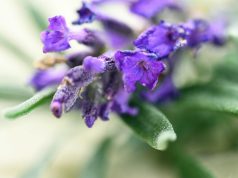Joint pain is a common affliction that affects millions of people worldwide, often hindering daily activities and diminishing quality of life. Whether stemming from arthritis, injury, or overuse, the discomfort can be both physically and emotionally taxing. Fortunately, nature offers a plethora of herbal solutions that can provide relief and promote healing. In this guide, we will explore various herbal remedies known for their soothing properties and how they can be integrated into your wellness routine. With an empathetic approach, we aim to empower you with knowledge and practical tips to help alleviate joint pain, allowing you to reclaim comfort and mobility in your life.
Understanding Joint Pain and Its Impact on Daily Life
Joint pain can be a persistent and debilitating condition that affects one’s ability to perform even the simplest daily tasks. Whether it’s caused by arthritis, injury, or other factors, finding relief is crucial for maintaining quality of life. Fortunately, herbal solutions offer a natural and effective way to soothe discomfort and enhance mobility. Herbal remedies have been used for centuries and can be a gentle yet potent addition to your pain management strategy.
Consider incorporating the following herbs into your routine:
- Turmeric: Known for its anti-inflammatory properties, turmeric can help reduce swelling and pain.
- Ginger: This root is not only a tasty addition to meals but also acts as a natural pain reliever.
- Willow Bark: Often referred to as nature’s aspirin, willow bark is effective in easing joint pain.
- Devil’s Claw: Popular in African traditional medicine, it is known for reducing pain and improving mobility.
For those who prefer structured information, here’s a quick comparison of the benefits these herbs offer:
| Herb | Primary Benefit | Usage Form |
|---|---|---|
| Turmeric | Reduces inflammation | Capsules, powder |
| Ginger | Relieves pain | Tea, supplements |
| Willow Bark | Acts as natural aspirin | Tea, capsules |
| Devil’s Claw | Improves mobility | Capsules, extracts |
Integrating these herbal solutions into your daily regimen may not only ease your joint pain but also contribute to a more holistic approach to wellness. Always consult with a healthcare provider before starting any new treatment to ensure it’s suitable for your individual health needs.

Exploring the Healing Properties of Herbal Remedies
Joint pain can be a persistent and challenging issue for many, often leading individuals to seek out natural alternatives for relief. Embracing the wisdom of nature, herbal remedies offer a gentle yet effective way to soothe discomfort. Some of the most popular herbal solutions include:
- Turmeric: Known for its anti-inflammatory properties, turmeric contains curcumin, which can help reduce joint swelling and pain. Consider adding turmeric to your diet or using it in a topical paste for targeted relief.
- Ginger: This warming herb is not only a culinary delight but also a potent anti-inflammatory agent. Consuming ginger tea or incorporating it into meals can help alleviate joint stiffness.
- Willow Bark: Often referred to as “nature’s aspirin,” willow bark contains salicin, which can be beneficial in reducing joint pain. It can be consumed as a tea or taken in supplement form.
For those interested in combining these herbal remedies, here is a simple guide:
| Herb | Form | Usage |
|---|---|---|
| Turmeric | Powder | Add to smoothies or create a paste with water |
| Ginger | Fresh or Dried | Brew in tea or use in cooking |
| Willow Bark | Tea or Capsules | Consume as directed for pain relief |
Integrating these herbal allies into your daily routine can be a soothing balm for aching joints. Always ensure you consult with a healthcare professional before beginning any new treatment, especially if you are currently taking medication or have underlying health conditions. Your journey to comfort and well-being deserves personalized care and attention.

Top Herbal Solutions for Reducing Inflammation and Pain
Finding relief from joint pain doesn’t always have to mean reaching for over-the-counter medications. Nature offers a treasure trove of herbs known for their anti-inflammatory and pain-relieving properties. Here are some potent herbal solutions that may help you regain comfort and mobility:
- Turmeric: Rich in curcumin, this golden spice is famed for its ability to reduce inflammation and ease joint pain. Incorporate it into your diet by adding it to soups, stews, or even smoothies.
- Ginger: Known for its warming properties, ginger can help reduce pain and stiffness. Consider sipping on ginger tea or adding fresh ginger to your meals.
- Willow Bark: Often referred to as “nature’s aspirin,” willow bark can help alleviate pain thanks to its salicin content. It can be consumed as a tea or taken in capsule form.
Below is a comparison of these herbs based on their primary benefits:
| Herb | Main Benefit | How to Use |
|---|---|---|
| Turmeric | Anti-inflammatory | Add to food or take as a supplement |
| Ginger | Pain relief and warming | Tea, fresh in meals |
| Willow Bark | Pain relief | Tea or capsules |
Embrace the power of these herbal allies and explore their benefits as part of your wellness routine. Remember, it’s always wise to consult with a healthcare professional before starting any new treatment, especially if you have existing health conditions or are taking other medications.

Creating a Personalized Herbal Regimen for Lasting Relief
When crafting your herbal regimen for joint pain relief, it’s essential to tailor it to your specific needs and lifestyle. Begin by identifying the herbs that resonate with your body’s unique chemistry. Here are some effective herbs that have been traditionally used to alleviate joint discomfort:
- Turmeric: Known for its anti-inflammatory properties, this vibrant yellow spice can be added to your diet or taken as a supplement.
- Ginger: Often used to reduce pain and inflammation, ginger can be consumed fresh, in tea, or as a supplement.
- Willow Bark: Referred to as nature’s aspirin, this herb is effective for reducing pain and can be consumed as a tea or in capsule form.
Consider creating a simple daily routine that incorporates these herbs. For instance, start your morning with a cup of ginger tea, add turmeric to your lunchtime meals, and wind down your evening with a soothing willow bark infusion. To track the effectiveness of your regimen, maintain a journal to note any changes in your symptoms.
| Herb | Form | Usage |
|---|---|---|
| Turmeric | Powder, Capsule | Daily in meals or as supplement |
| Ginger | Fresh, Tea, Capsule | Morning or midday |
| Willow Bark | Tea, Capsule | Evening relaxation |








































